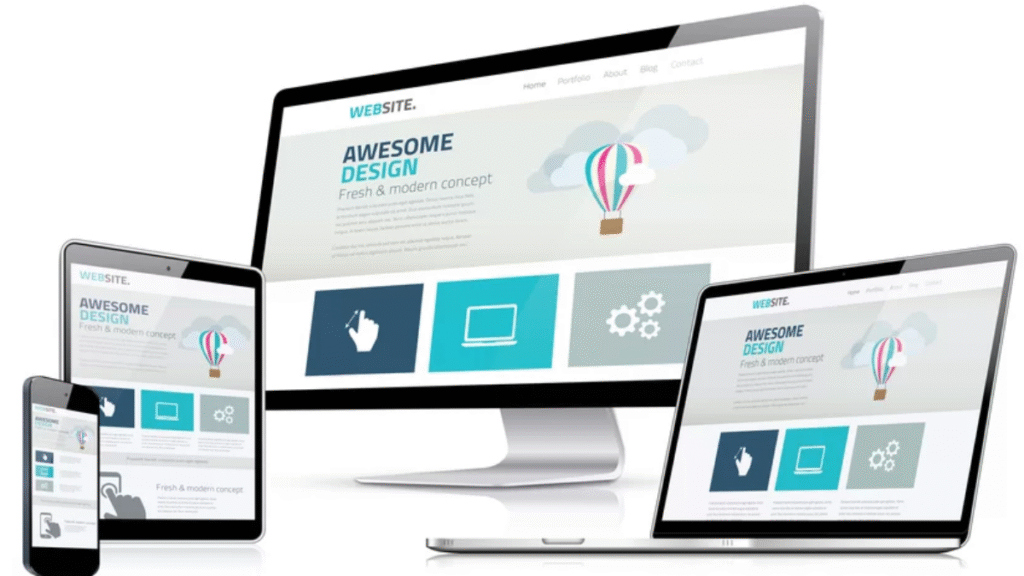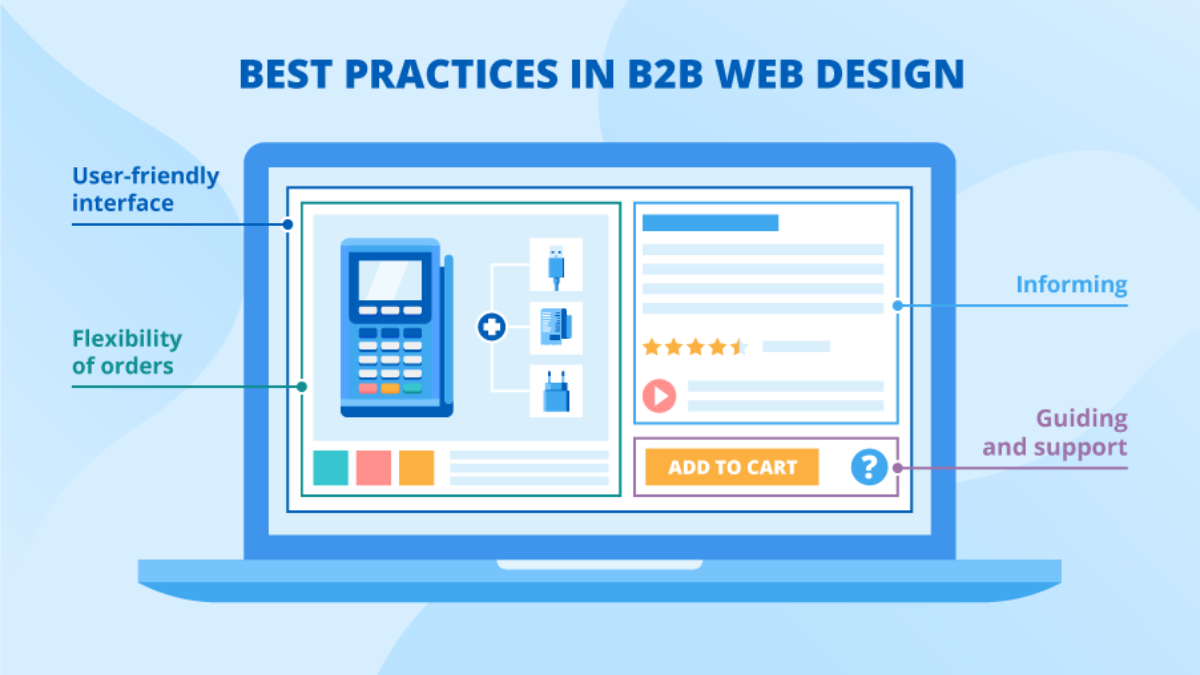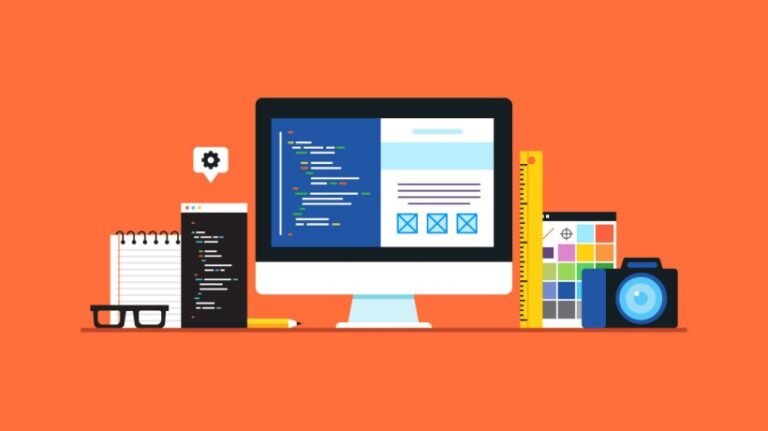The Rise of B2B eCommerce
In the last decade, B2B eCommerce has undergone a massive transformation. What was once dominated by phone calls, paper catalogs, and sales reps has now shifted to digital-first platforms where businesses expect the same seamless online shopping experience as consumers.
According to industry studies, the global B2B eCommerce market is projected to surpass $20 trillion by 2027, outpacing B2C growth. This surge highlights the growing importance of B2B eCommerce website development for wholesale, distribution, and manufacturing companies.
Unlike standard retail sites, B2B eCommerce platforms require custom features like bulk ordering, personalized pricing, contract management, and integration with ERP or CRM systems. To achieve this, businesses need professional eCommerce developers and custom website programming services that ensure scalability, security, and smooth operations.
This article explores everything you need to know about B2B eCommerce website development—its importance, core features, development process, and how the right partner can help you build a future-proof online store.
Why B2B Businesses Need Custom eCommerce Development
While many companies start with off-the-shelf eCommerce solutions, B2B transactions involve far more complexity. Here are a few reasons why custom website programming services are essential for B2B growth:
- Complex Ordering Needs – B2B buyers often purchase in bulk, requiring advanced inventory and order management systems.
- Customer-Specific Pricing – Unlike B2C, pricing may vary depending on contracts, quantity, or buyer tier.
- Multiple Decision-Makers – B2B purchases often involve several stakeholders; thus, platforms must support account hierarchies.
- ERP & CRM Integration – Seamless data flow between eCommerce, inventory, and customer management tools is crucial.
- Longer Sales Cycles – B2B websites must facilitate reordering, quotes, and negotiations.
By investing in professional B2B eCommerce website development, businesses can deliver a personalized and efficient buying experience that keeps wholesale clients loyal.

Key Features of a Successful B2B eCommerce Website
When working with an eCommerce developer or agency, it’s important to ensure your platform includes features tailored to business buyers.
1. Personalized Customer Portals
- Multiple user accounts for a single company
- Role-based permissions for procurement teams
- Account-specific dashboards
2. Advanced Pricing & Discounts
- Tiered pricing for different customer segments
- Contract-based pricing rules
- Bulk order discounts automatically applied
3. Flexible Payment Options
- Credit limits for trusted buyers
- Net terms (30/60/90-day payments)
- Integration with invoicing and accounting systems
4. Streamlined Ordering Experience
- Quick reorder functionality
- Bulk upload (CSV/XLS) ordering
- Saved shopping lists for repeat purchases
5. Integration with Business Systems
- ERP, CRM, and inventory software sync
- Automated quote-to-order workflows
- Real-time stock visibility
6. Robust Security & Scalability
- Secure payment gateways
- Data encryption and GDPR compliance
- Scalable infrastructure for high-volume orders
7. Mobile-Optimized Design
With more B2B buyers using smartphones for research, mobile-friendly development is no longer optional.
The Process of B2B eCommerce Website Development
Partnering with the right eCommerce developer ensures that your project moves smoothly from concept to launch. Here’s what the typical process looks like:
a. Discovery & Planning
- Define your business model (wholesale, distribution, manufacturing).
- Identify customer needs and purchase workflows.
- Choose the right tech stack (Magento, Shopify Plus, BigCommerce B2B, or custom-built platforms).
b. UI/UX Design
- Design an intuitive interface tailored to B2B buyers.
- Ensure easy navigation for bulk orders and account management.
- Create responsive layouts for desktop, tablet, and mobile.
c. Custom Website Programming
- Develop personalized features such as tiered pricing or bulk ordering.
- Integrate with ERP, CRM, and payment systems.
- Optimize backend for handling large product catalogs.
d. Testing & Quality Assurance
- Functional testing for order flows and payments.
- Security testing to prevent breaches.
- Performance testing under high-traffic conditions.
e. Launch & Optimization
- Deploy the website in a secure hosting environment.
- Set up analytics and reporting tools.
- Optimize continuously for conversions and customer experience.
Choosing the Right eCommerce Developer
Not all developers are equipped to handle the complexities of B2B systems. When selecting a partner for custom website programming services, consider the following:
- Experience in B2B projects – Look for portfolios showcasing wholesale or manufacturing clients.
- Technical expertise – Ensure they are skilled in multiple platforms (Magento, Shopify Plus, WooCommerce, Laravel, etc.).
- Integration capabilities – Ask about experience with ERP/CRM tools like SAP, Oracle, Salesforce, or Microsoft Dynamics.
- Scalability focus – The developer should design your site with long-term growth in mind.
- Support & maintenance – Post-launch assistance is critical for bug fixes, updates, and scaling.
Benefits of Custom B2B eCommerce Website Development
When done right, professional B2B eCommerce solutions deliver measurable business outcomes:
- Increased Sales Efficiency – Automated ordering reduces manual work for sales reps.
- Improved Customer Retention – Personalized pricing and account features build loyalty.
- Scalable Growth – Handle higher transaction volumes without compromising performance.
- Data-Driven Decisions – Real-time analytics guide pricing, inventory, and marketing strategies.
- Global Reach – Multilingual, multi-currency support enables international expansion.
Trends Shaping the Future of B2B eCommerce
To stay ahead, businesses should watch these emerging trends:
- AI-Powered Personalization – Recommending products based on buyer history.
- Voice Commerce – Enabling reorders via voice assistants.
- Headless Commerce – Decoupling frontend and backend for greater flexibility.
- Blockchain Security – Enhancing supply chain transparency and secure payments.
- AR/VR Product Demos – Allowing customers to visualize complex products in 3D.
By incorporating these innovations, B2B companies can create future-ready eCommerce platforms that stay competitive.
Conclusion: Future-Proofing Your B2B Business
B2B buyers now expect the same level of convenience they experience in B2C shopping—but with added complexities like bulk orders, custom pricing, and system integrations. That’s why investing in B2B eCommerce website development is no longer optional—it’s a necessity for growth.
By partnering with skilled eCommerce developers and leveraging custom website programming services, businesses can create powerful platforms that are scalable, secure, and optimized for conversions.
Whether you’re a wholesaler, distributor, or manufacturer, the time to invest in a custom eCommerce solution is now. A tailored platform doesn’t just improve transactions; it builds long-term relationships, boosts efficiency, and positions your business for digital success.
















